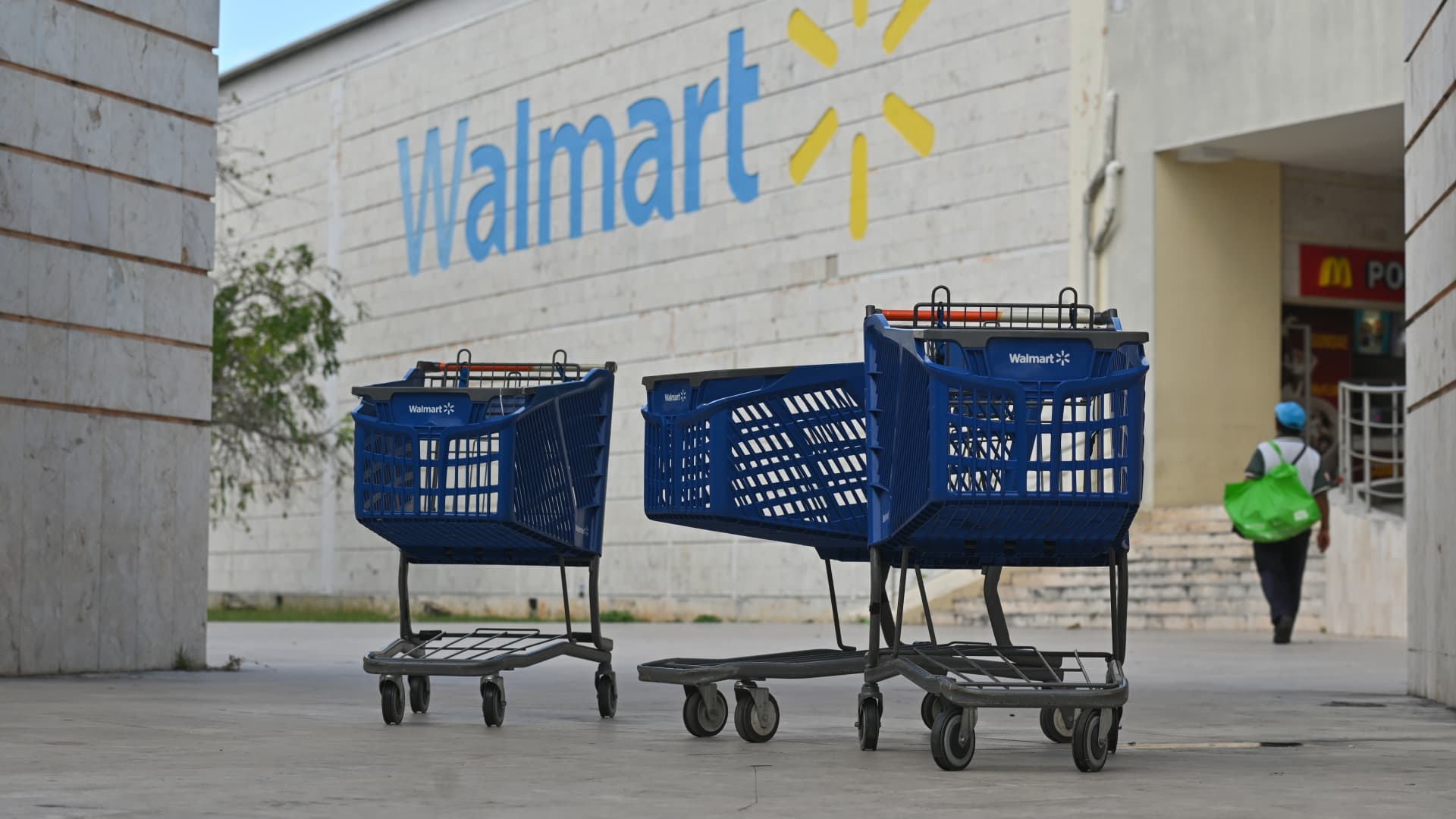Walmart on Monday cut its quarterly and full-year profit guidance, saying inflation is causing shoppers to spend more on necessities such as food and less on items like clothing and electronics.
That shift in spending has left more items on store shelves and warehouses — forcing the big-box retailer to aggressively mark down items that customers don’t want.
The company’s stock fell more than 8% at the open Tuesday. Shares of other retailers, including Target and e-commerce giant Amazon, also fell.
Walmart said it now anticipates adjusted earnings per share for the second quarter and full year to to decline around 8% to 9% and 11% to 13%, respectively. It had previously expected them to be flat to up slightly for the second quarter and to drop by about 1% for the full year.
Inflation has grown at the fastest pace in four decades. As consumers face higher prices at the gas pump, grocery store and restaurants, some consumers are choosing where to spend money and where to pull back. In some cases, they are prioritizing experiences they missed during the pandemic — such as splurging on a vacation or dinner at a restaurant.
Walmart, which is the biggest grocer in the U.S. and often considered a bellwether for the overall economy, said more customers are turning to its stores, which are known for low prices, to fill their pantries and fridges. But they are skipping over general merchandise that they can live without.
Walmart said it now expects same-store sales in the U.S. to rise by about 6% in the second quarter, excluding fuel, as customers buy more food at its stores. That’s higher than the 4% to 5% increase that the company previously expected.
However, that merchandise mix will weigh on the company. Groceries have lower profit margins than discretionary items, such as TVs and clothing.
“The increasing levels of food and fuel inflation are affecting how customers spend, and while we’ve made good progress clearing hardline categories, apparel in Walmart U.S. is requiring more markdown dollars,” CEO Doug McMillon said in a news release.
He said the company is seeing strong back-to-school sales in the U.S., but anticipates people will pull back on buying general merchandise in the second half of the year. That could be warning sign for retailers ahead of the holiday shopping season.
The sharp change in consumer spending could jeopardize other aspects of Walmart’s strategy, too. The company wants grow its subscription service, Walmart+, but that could be a tougher sell if Americans scour their bills for fees to cut. It has launched a growing number of general merchandise brands, particularly in apparel and home, which could now wind up on the clearance rack.
Yet McMillon has said Walmart can gain market share and more of customers’ wallets during the inflationary period by emphasizing good value. Over the past several quarters, he has stressed that the discounter will keep prices low.
Target also slashed its forecast for the second quarter. Last month, the retailer said its profit margins would take a hit as it canceled orders and marked down merchandise. The company largely attributed the revised forecast to having too much merchandise, including a lot of bulky items such as small home appliances that saw a drop in demand.
Walmart will report its fiscal second quarter results Aug. 16.
Read the full Walmart release here.
— CNBC’s Lauren Thomas contributed to this report.
Image and article originally from www.cnbc.com. Read the original article here.

